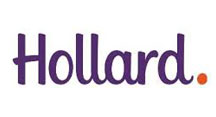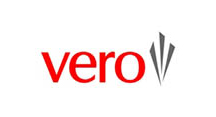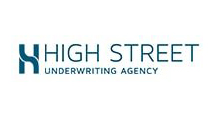Product liability insurance is designed to protect your business if your products cause injury or property damage to customers. This type of insurance policy may cover the legal and financial costs associated with claims of damage or injury.
Having adequate product liability insurance provides business owners with peace of mind, allowing them to focus on their business operations without worrying about potential product-related liabilities.
As a business owner, you take pride in maintaining high-quality product standards. However, even with the most stringent quality control, faults can occur. Product liability insurance may protect your business against such incidents.
If a customer makes a product liability claim for injury or loss caused by your business’s product, you may experience financial loss without adequate protection. Product liability insurance may cover the costs of such claims, safeguarding your business from major financial fallout.
This insurance covers various situations where a product can negatively impact customers and cause financial loss to your business, including personal injury or illness from product malfunctions, food contamination, and property damage caused by your product.
Aside from protecting your business’s finances and reputation, product liability insurance helps you comply with legal requirements, as some industries mandate this coverage. Having product liability insurance ensures you meet these regulations and avoid potential legal penalties.
Product liability insurance may cover various situations where a product you make or sell negatively impacts customers and causes financial loss to your business. This includes:
If a customer is injured or becomes ill due to a fault in your product, product liability insurance may cover medical expenses, legal fees, and any compensation awarded.
Examples may include:
If your product damages a customer’s property, product liability insurance may cover the costs of repair/replacement along with any related legal fees.
Examples include:
This is a guide only and will vary depending on the product you sell and the policy you take out. It’s important to check with your insurer or Product Disclosure Statement (PDS) to find out what is and isn’t covered in your policy.
Like many insurance products, there are some things that product liability insurance doesn’t cover. Here are some of the common exclusions in product liability policies:
As always, it’s important to check with your insurer or Product Disclosure Statement (PDS) to find out what is and isn’t covered in your policy.

Product liability insurance should be considered by all businesses, including sole traders, manufacturers, wholesalers, and retailers.
Typically, any business that is involved in the production, supply, or sale of products should obtain product liability insurance.
No matter what type of product it is, there’s always the potential for something to go wrong. Even if you’re not at fault for injury or damage resulting in a defective product, you may still be liable for legal costs when defending a claim.
Product liability insurance may safeguard your business by covering any costs associated with claims made against you. This gives you the ability to confidently go about your work with peace of mind even if something was to go wrong.
Even if you do not make the products you sell, have you considered what it might cost you to legally defend or redirect any claims made against you back to the manufacturer? Product Liability Insurance may be an additional layer of protection for you and your business.
It’s difficult to provide a one-size-fits-all cost for product liability insurance since many factors may affect your premium, such as:
To get an accurate cost of product liability insurance for your business, it’s best to request a quote or speak to our insurance brokers.
Several factors may determine the cost of product liability insurance:
In Australia, product liability insurance is not required by law. However, it may be a requirement before licences for certain trades are issued. Additionally, if you sell, supply, or deliver goods – whether through direct sales, repairs, or services – you could be held liable if your products result in:
Product liability insurance may protect your business if your product fails and causes any of these issues for another individual or business. Failure to possess product liability insurance in the above events could see your business liable for legal costs, compensation, or financial damages in the event of a claim made against you.
When choosing a product liability insurance policy, ensure it offers adequate coverage limits for potential risks associated with your products and business type.
You may purchase product liability as a standalone coverage or as part of a general liability insurance policy. A standalone policy would be appropriate for a company with a high risk of product liability.
When choosing product liability insurance, pay attention to:
Limits in product liability insurance define the maximum amount the policy will pay for claims arising from product-related issues. This includes legal defence fees, compensation, and damages.
Deductibles are the amount you must pay out-of-pocket before your insurance coverage starts. In product liability insurance, higher deductibles typically lead to lower premium costs, but you’ll need to cover a larger portion of the expenses if a claim occurs.
There are a few circumstances that may not be covered under product liability insurance.
Ensure to review your policy details with your insurer and PDS to understand all exclusions.
List of states and territories in Australia we can help the self-employed find the insurance cover they need :




